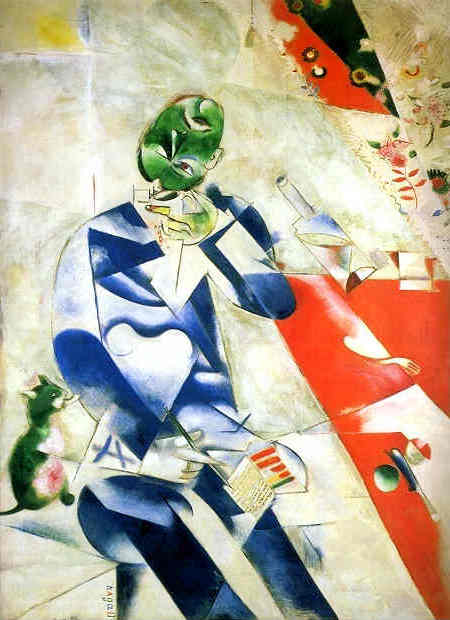Israel 1
The yellow room is, of course, a personal piece of poetics.
Israel meant little to me until 1967. I don't remember it being mentioned in the family at all so the country's condition and circumstances were fresh to me.
It was the lead-up to it I remember, the massing of Syrian, Jordanian and Egyptian forces on the borders and the voice of Nasser promising to push Israel into the sea. At that point I seem to remember a certain anxiety in the house, but then came the preemptive strike by the Israeli air force and the Six Day War. And then it was over.
On the day it was over the same friend whose parents conspicuously read Holocaust literature on German-frequented beaches was glowing with pride. Arrogance? he reacted when someone upbraided him for it. Yes, I feel proud and arrogant. (He has since become an Israel-sceptic who believes the country faces no existential threat).
Why the arrogance? I think I understood this even then. The image of the Jews had been of people easily herded to their own extinction. They put up no fight. They had been humiliated and had to be rescued by others, and so, while being pitied they were also secretly despised a little. It was a race (yes, a race, not a religion) compounded of sheepish, kindly, possibly wise but equally possibly grasping and not altogether untrustworthy tailors and small tradesmen with loud and nagging wives. Eternal immigrants. Either big capitalists or political radicals, according to some. Never quite one of us, though they could be very decent and clever chaps. This was the impression I picked up in England - and expected to pick up every else too - from the little I heard and read and saw. As for our genuinely kindly hosts, the British had fought the war for the Jews because the British were decent and brave and open and did such things. It was in their nature. The Jews had better be grateful. (They were.)
I accepted the decent and brave and open self-description. I felt sure that Jews were far safer in Britain than anywhere else and though I did not fully know we ourselves / I myself were / was Jewish I felt secretly pleased and relieved to be a part of Great Britain and the Commonwealth, that huge red splodge on the map.
*
After art school I went to Goldsmith for a year and there I had a dear anarchist non-Jewish tutor called Tony. One day in a supervision he told me that the kibbutz was the ideal socialist / anarchist community. The kibbutz had never been in the least tempting to me - like being on a muscular-Judaism field course, I thought - but it was interesting to hear him say that, because I think the British left, including the quite radical left were in support of Israel and its right to exist at that time. In fact it was supposed to be something of a shining beacon, an example to us all: a country of plucky survivors doing it for themselves, turning the desert into fields.
This was 1973 and the Yom Kippur War was about to kick off in a few months time. But this was only March, maybe even February.
The poet in the Chagall painting (Blaise Cendrars) has his head upside down. Perhaps we are born that way.


1 comment:
this whole series has been very moving, even profound, and i've
enjoyed reading every installment. and i think the way you used this room to bring together the notions of milieu and refuge is fascinating, and one that has a lot of resonance.
les
Post a Comment